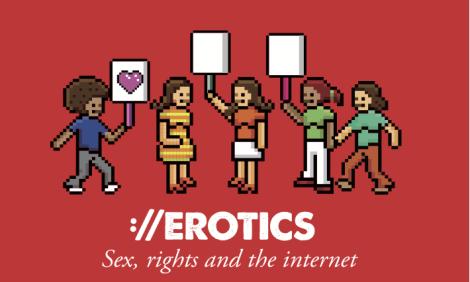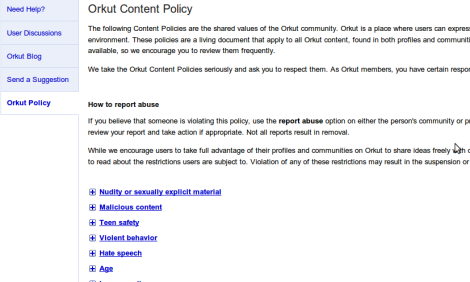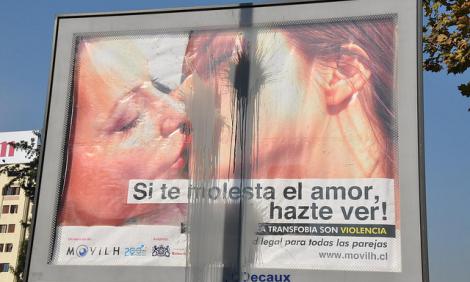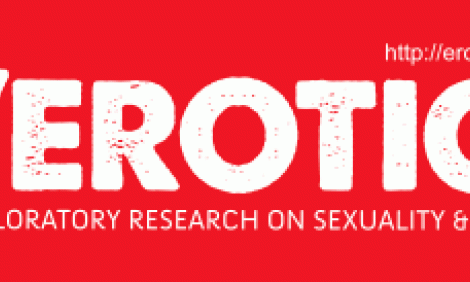Feminist talk
Sexuality and the internet: a five country perspective
This blog post is the final one in a series of ten blog posts to report on the EROTICS India workshop, recently concluded in Delhi. All the blog posts in this series are written by Richa Kaul Padte, the official rapporteur at the meeting.

In depth
Brazil, Magaly Pazello: “We have no specific debate on women's internet rights”
Magaly Pazello, activist and specialist researcher in gender and information and communication technologies, recently joined the team that developed the Brazil report for the UN's Universal Periodic Review. In discussion with Flavia Fascendini, the editor of GenderIT.org, Pazello confirmed that there is still a great deal to do with regards to the connection between women's rights and a broad…
Publication
Submission to the Universal Periodic Review of Brazil
This joint submission has been prepared by the APC Women’s Networking Support Programme in consultation with Instituto Nupef and is endorsed by Sexuality Policy Watch. The submission focuses on human rights and the internet in Brazil. It highlights areas where Brazil is doing well, specific areas of concern, and makes five recommendations for follow-up and implementation. The submission focuses…
Publication
MEDIA BRIEF: Censorship, sexuality and the internet
What is sexual content on the internet? What are sexuality and sexual rights? Which communications rights are critical for people's sexual rights? What are the most common threats to people's sexual rights? What are some of the methods and impacts of censorship of "sexual content" on the internet? These and other issues are highlighted by the media brief published by APC as part of the EroTICs…

Publication
EROTICS: Sex, rights and the internet - an exploratory research study
How is the internet a key public sphere for the struggle for sexual citizenship and the exercise of sexual rights? What is its value to a diversity of users, especially those most marginalised or discriminated against because of their sexual, gender or other forms of social identity? Why do arguments for the regulation of the internet anchor on the moral imperative to regulate sexuality? Who are…

Feminist talk
Brazil: An ethnographic approach – mapping sexuality on Orkut
Flavia Fascendini explores two communities on the Orkut social networking site on sexuality: one is a forum for anti-lesbian prejudice, and the second is a community aimed at legitimising romantic relationships between adults and adolescents. Both groups were studied as the part of the Brazilian EROTICS research project that focused on mapping the dynamic and complex policy shifts on internet…

In depth
EROTICS in Brazil: The complex universe of sexuality on the internet
Sexuality Policy Watch and the Latin American Centre on Sexuality and Human Rights teamed up together to conduct the EroTICs research in Brazil. In an interview with Flavia Fascendini, they talked about their participation in the project as an opportunity to address the nuanced impact of new Internet legislation on sexuality. They approached this complex issue from two sides: looking at…
Feminist talk
Internet regulations can benefit from cross-sectoral conversations, says Marina Maria at the Human Rights Council
Marina Maria, a member of the Brazil EroTICs research team, was one of the panellists of the 'Internet rights are human rights' event co-organized by the APC with the Swedish Ministry for Foreign Affairs at the Human Rights Council’s 17th session in Geneva on June 3. Due to time limitations, she was not able to present her paper in full at the event. GenderIT.org is publishing her complete…

Publication
EROTICS: Exploratory research on sexuality and the internet - summary report
What is the value of the internet in the exercise of sexual rights? From 2008 to 2010, the EROTICS research sought to answer this question, aiming to bridge the gap between policy and legislative measures that regulate content and practice on the internet, and the actual lived practices, experiences and concerns of internet users in the exercise of their sexual rights. The summary report provides…
In depth
Internet regulation and the Brazilian EroTICs context
Authors Sonia Corrêa, Marina Maria and Jandira Queiroz document how gender and sexuality have been at the heart of internet regulation debates in Brazil. However, this centrality does not necessarily translate to the discourses, analysis and the political claims of social actors involved in sexual politics, on the one hand, and digital politics, on the other. In the authors' view, there is no…




